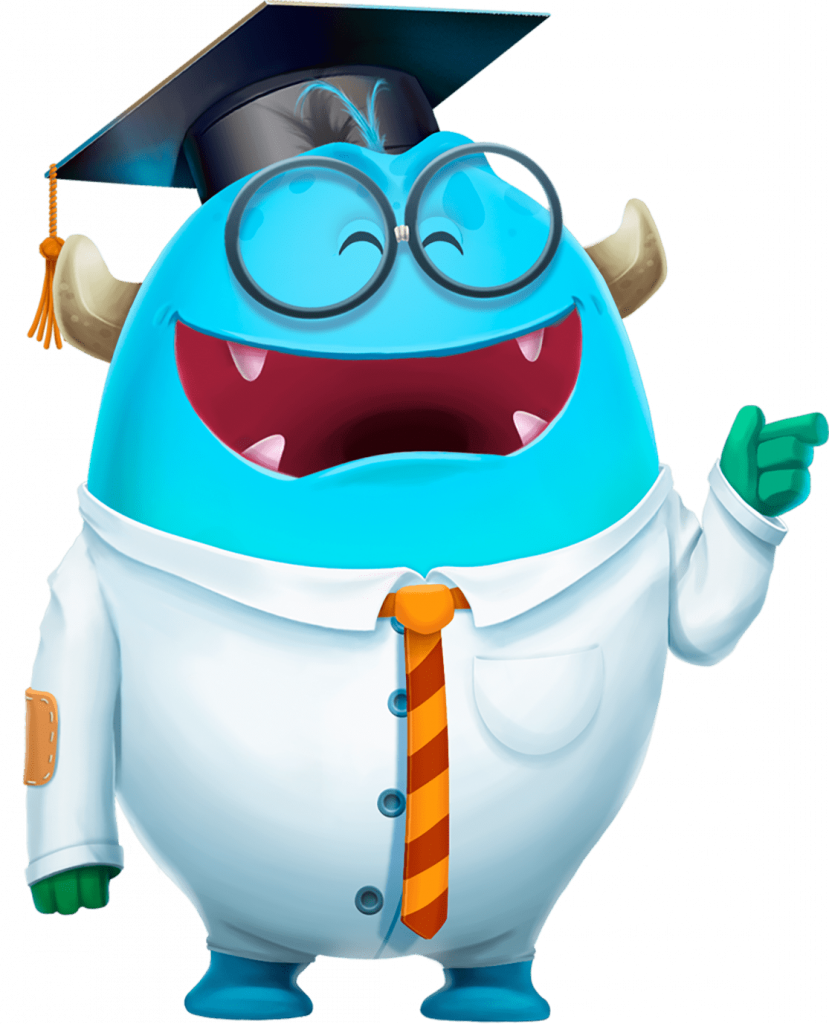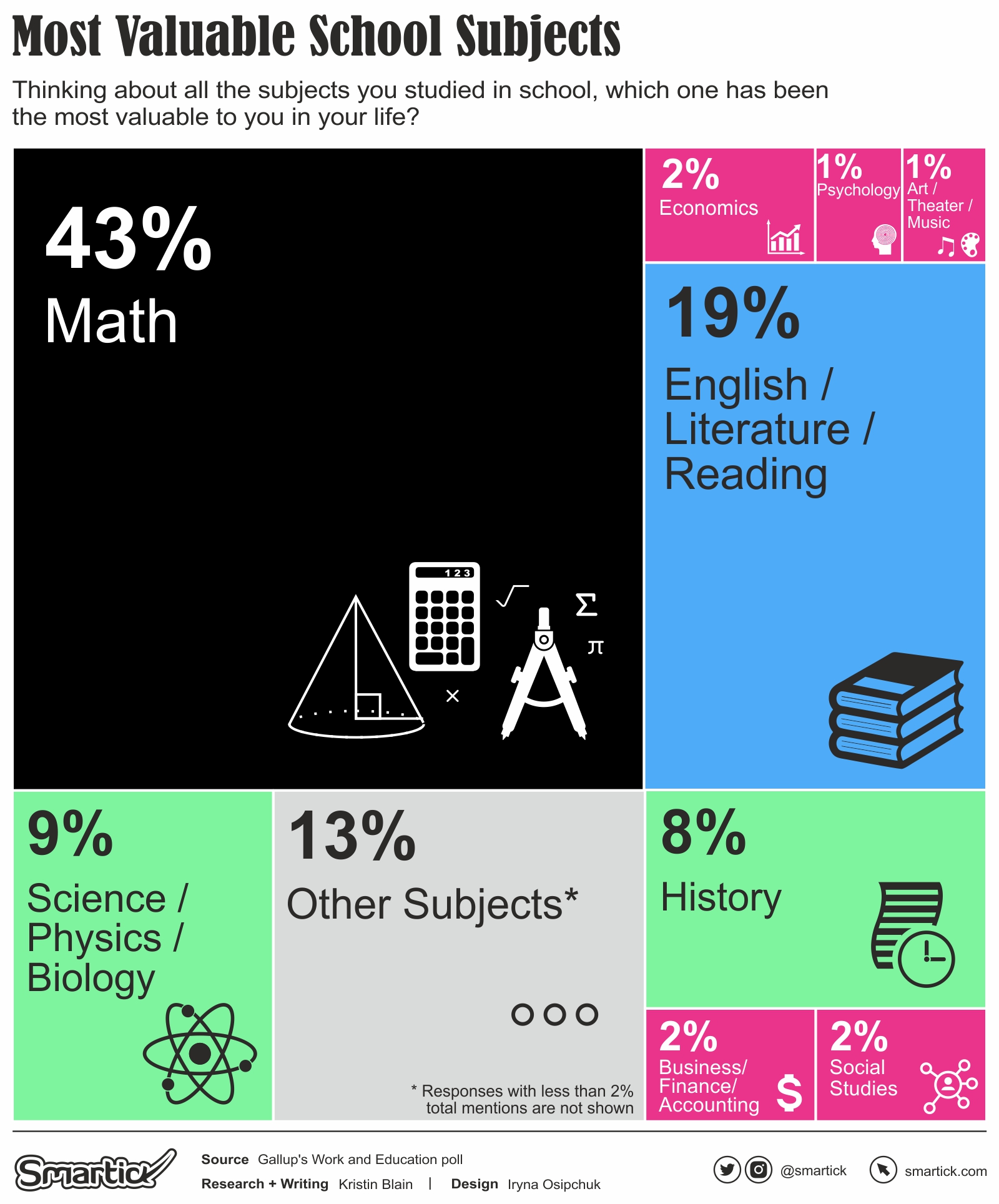
For many Americans, Math might not be the most stress-free subject— but the merits of numeracy skills in daily life boasts a strong consensus across the nation. According to a Gallup poll completed by American adults on the most valuable school subjects, Mathematics swept the board.

The poll’s data, collected from a substantial sample across the fifty states, showed that 43% of U.S. adults agreed that Math has been the most valuable subject in their lives—and for good reason. Research from the National Science Foundation demonstrates that strong Math literacy helps people to make better decisions about their health and finances. It also opens doors to a growing and lucrative job market.
But 43% is still less than half—so what’s the big deal?
A second look at Gallup’s data suggests that the statistic for Math’s perceived value might need some further calculation—since other popular subjects often require elements of numeracy, too.
Math, Math, Everywhere
The 9% of Americans that agreed Science has been the most valuable school subject in their lives might not have stopped to consider that the processes surrounding Science instruction (e.g. measurement, graphing, data, formulas) are often intertwined with the subject of Math. In fact, the Next Generation Science Standards (NGSS) which guide national school curricula in the teaching of Science, Engineering and Technology actively promote the use of STEM (Science Technology Engineering—and Math) throughout their framework.
Another 4% of adults who chose subjects including Economics, Business, Finance, and Accounting should duly recognize that these subjects are heavily dependent on mathematical concepts such as Statistics and Probability.
That brings the total score for Math to 56%.
But…What About the Remaining 44%?
19% of Americans communicated close ties with English, Literature, and Reading while others reported that subjects including History, Social Studies, and the Fine Arts took precedence. 13% of pollers favored subjects including Foreign Languages, Home Economics, and Religion or Theology.
Due to the rapid growth of AI technology to ‘do the math for us’, many of these voters might be operating under the misconception that Math learning is becoming obsolete. And although technologically-assisted learning has indeed increased exponentially since the turn of the century, the Math skill set needed for math mastery today has evolved as well.
With the launch of the more academically-rigorous, college-ready-driven Common Core State Standards (and their curricular companion The 8 Standards for Mathematical Practice) today’s students are required to flex more cognitively-demanding Math muscles using reasoning, critiquing, modeling, precision, and strategic planning for not only quantitative but also more abstract problem solving.
This type of Math learning incorporates technology (like smartphones and tablets) to be used not so much as calculators, but as mechanisms to enhance students’ math skills and expand their available tool set; employing applications and programs to inquire, investigate, analyze, and design solutions to problems.
By fundamentally redesigning Math instruction in the classroom with a ‘ratcheting up’ of its cognitive dimensions, conceptual understanding reaches beyond that 45-minute Math block and into all other subject areas. In the future, the value of our school experiences and their real-world application will not be measured by instruction in one subject or another, but as an integrated approach involving, no doubt, rich mathematical thinking.

